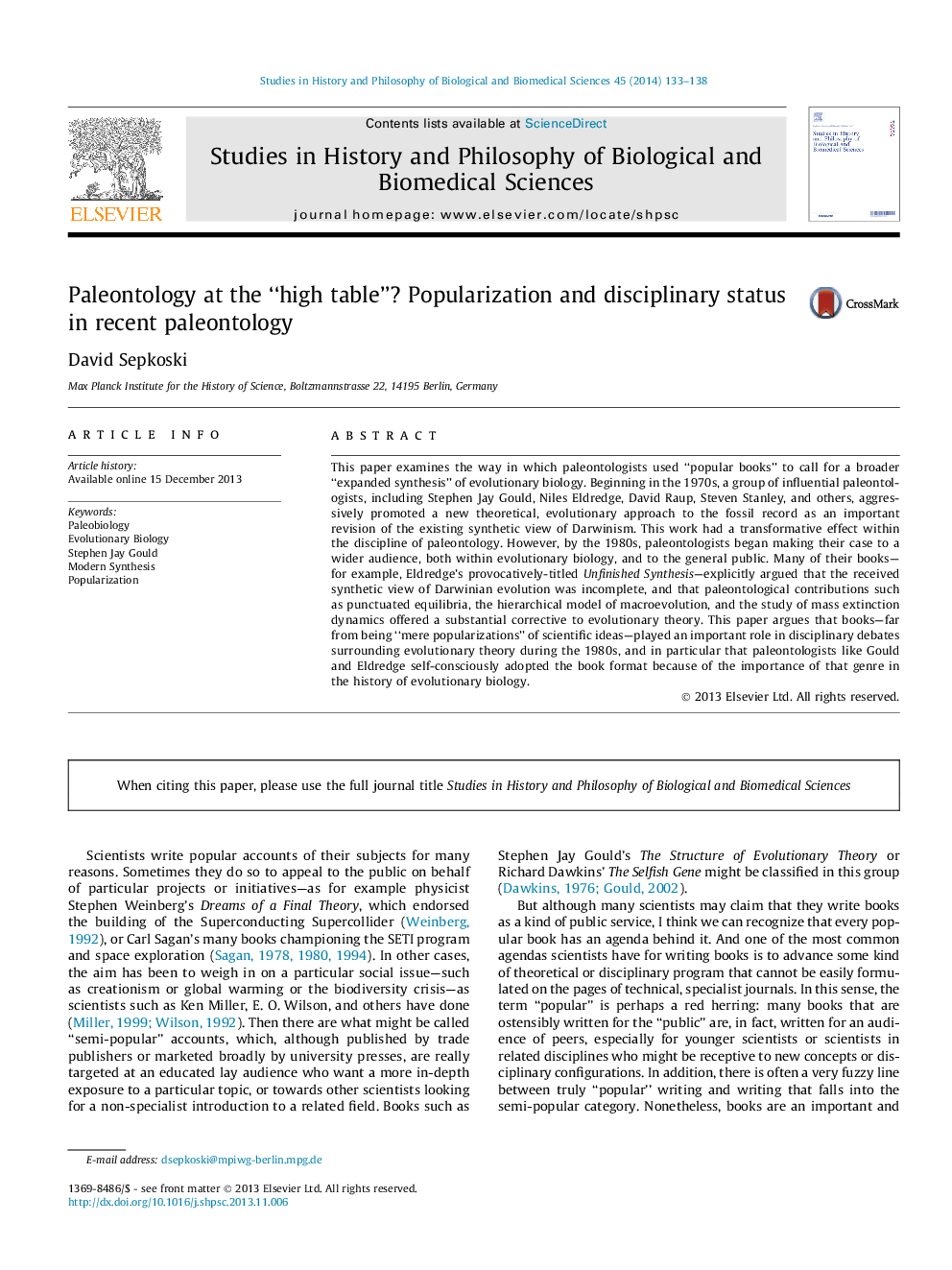| Article ID | Journal | Published Year | Pages | File Type |
|---|---|---|---|---|
| 7552799 | Studies in History and Philosophy of Science Part C: Studies in History and Philosophy of Biological and Biomedical Sciences | 2014 | 6 Pages |
Abstract
This paper examines the way in which paleontologists used “popular books” to call for a broader “expanded synthesis” of evolutionary biology. Beginning in the 1970s, a group of influential paleontologists, including Stephen Jay Gould, Niles Eldredge, David Raup, Steven Stanley, and others, aggressively promoted a new theoretical, evolutionary approach to the fossil record as an important revision of the existing synthetic view of Darwinism. This work had a transformative effect within the discipline of paleontology. However, by the 1980s, paleontologists began making their case to a wider audience, both within evolutionary biology, and to the general public. Many of their books-for example, Eldredge's provocatively-titled Unfinished Synthesis-explicitly argued that the received synthetic view of Darwinian evolution was incomplete, and that paleontological contributions such as punctuated equilibria, the hierarchical model of macroevolution, and the study of mass extinction dynamics offered a substantial corrective to evolutionary theory. This paper argues that books-far from being “mere popularizations” of scientific ideas-played an important role in disciplinary debates surrounding evolutionary theory during the 1980s, and in particular that paleontologists like Gould and Eldredge self-consciously adopted the book format because of the importance of that genre in the history of evolutionary biology.
Related Topics
Life Sciences
Agricultural and Biological Sciences
Agricultural and Biological Sciences (General)
Authors
David Sepkoski,
